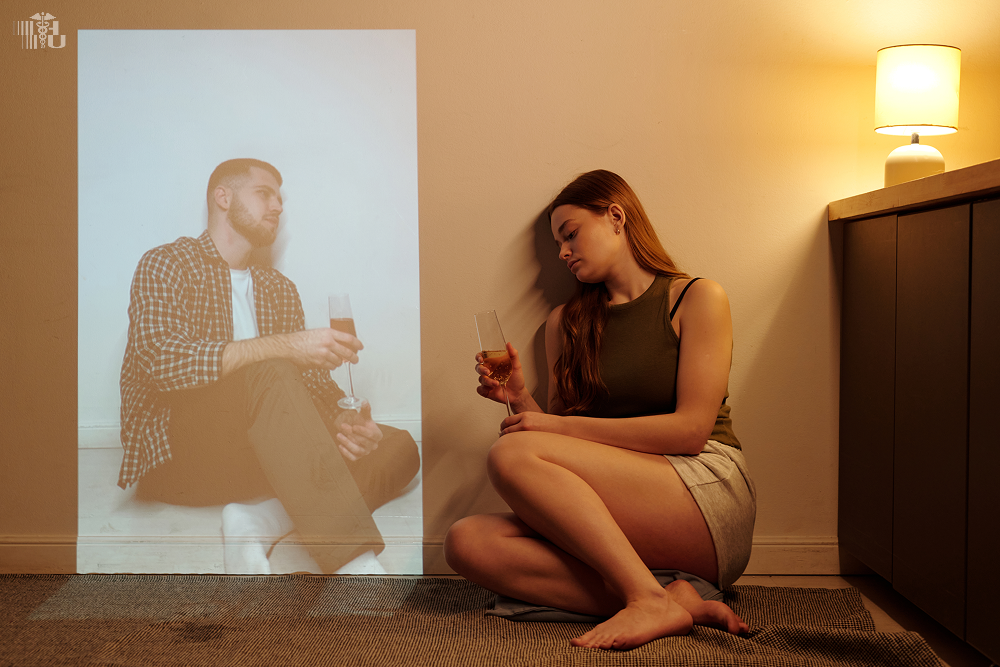Navigating the dating world is challenging for anyone, but when anxiety is a factor, the challenges become even more intense. For those struggling with anxiety, romantic interactions often come with a heightened sense of uncertainty and vulnerability. A common modern dating phenomenon, ghosting, where someone disappears without explanation, can be especially painful and destabilizing. Understanding the mental and Behavioral Health effects of ghosting, along with how to seek professional support, can help individuals manage its impact and foster healthier connections.
What Exactly Is Ghosting and Why Is It So Hurting?
Ghosting happens when a person you’ve been dating or talking to suddenly cuts off all contact without any warning or reason. Given how much dating today relies on texting, social media, and apps, ghosting has become an unfortunate but widespread experience.
For most people, ghosting stings, but for someone with anxiety, it can hit much harder. Anxiety often brings fears around abandonment and uncertainty. When someone abruptly disappears, it can trigger intense fear, self-doubt, and feelings of rejection. Because there’s no closure or explanation, the mind can spiral into catastrophic thinking inventing all kinds of worst-case scenarios. Sometimes, these unresolved feelings can also echo past Trauma or PTSD, intensifying the emotional turmoil.
Anxiety Makes Dating Extra Vulnerable
Dating inherently means opening yourself to potential intimacy and, sometimes, rejection. But for those living with anxiety or Anxiety Disorders, these emotions are magnified. Every message, pause, or silence might bring racing thoughts and worries.
Ghosting can deepen these vulnerabilities by reinforcing negative self-beliefs, such as feeling unworthy or flawed. The ambiguity creates a puzzle that the anxious mind compulsively tries to solve, often imagining the worst. This reaction can cause:
- Increased social anxiety or panic
- Trouble sleeping
- Difficulty concentrating in daily life
- Avoidance of future dating or social situations
Recognizing these psychological responses underscores the need for support in the wake of ghosting.
The Importance of Therapy and Behavioral Health Support
Mental health professionals like therapists and psychologists frequently support clients grappling with the emotional fallout of ghosting. Therapy provides a safe space to process feelings of rejection, rebuild self-confidence, and learn coping skills. Cognitive-Behavioral Therapy (CBT), for instance, helps reframe harmful thoughts and manage anxiety related to relationships.
If anxiety or trauma runs deep, trauma-focused approaches such as EMDR (Eye Movement Desensitization and Reprocessing) or Rapid Resolution Therapy can be very effective. These therapies assist individuals in healing from painful emotional wounds and trauma symptoms, like those found in PTSD.
When Psychiatry and Medication Management Make a Difference
Sometimes anxiety symptoms become so intense that they interfere with day-to-day functioning. That’s when consulting a psychiatrist becomes important. Psychiatrists are medical doctors with expertise in mental health who can assess whether medication like SSRIs, SNRIs, or anti-anxiety drugs might help balance emotions.
Medication often works best when combined with psychotherapy, offering a comprehensive behavioral health approach that addresses both brain chemistry and emotional patterns.
Telepsychiatry: Bringing Mental Health Care to You
Technology has transformed mental health care, with telepsychiatry making it easier to access treatment from anywhere. This is especially valuable for people who feel anxiety about in-person visits or face logistical barriers.
Through telepsychiatry, patients can connect with psychiatrists, therapists, and psychologists remotely, receiving support for anxiety, trauma, dating-related stress, and relationship counseling all in the comfort and privacy of home. Teletherapy options also make trauma and anxiety treatments more accessible, reducing barriers to ongoing care.
Building Healthy Boundaries and Moving Ahead
Recovering from ghosting takes time, patience, and self-kindness. Mental health experts recommend several strategies to help move forward:
- Acknowledge your pain honestly without judging yourself for feeling hurt.
- Lean on friends, family, or mental health providers for support.
- Set clear boundaries in future relationships, such as communication expectations.
- Work on growing self-esteem through therapy or support groups.
- Practice mindfulness or grounding exercises to interrupt rumination and calm anxious thoughts.
One powerful insight from therapy is recognizing that ghosting often reflects the other person’s avoidance rather than your value as a partner. This shift in perspective helps lessen the sting.
The Overlap of Trauma, PTSD, and Dating Anxiety
For those with a history of trauma be it childhood abuse, neglect, or previous relationship pain ghosting can feel particularly devastating. Trauma sensitizes the nervous system, making rejection and abandonment feel dangerously threatening.
In these cases, Ghosting may trigger PTSD symptoms like intrusive memories, hypervigilance, and emotional numbness. Therapists trained in trauma treatment can help individuals develop resilience, heal relational wounds, and create safer emotional experiences. Therapy also aids in distinguishing between past trauma responses and current reality, encouraging healthier patterns in dating.
Why We Need to Talk About Ghosting and Mental Health
Open conversations about ghosting are essential to raising awareness about how romantic relationships affect mental health. Emotional well-being is closely linked to interpersonal connections, so it’s crucial to recognize how digital dating affects our minds.
Mental health professionals advocate for education that highlights the behavioral health consequences of modern dating trends. Early intervention through therapy, psychiatry, and telepsychiatry can prevent the escalation of anxiety, depression, or trauma-related disorders.
Final Reflections
Dating with anxiety comes with unique challenges but also opportunities for growth and self-understanding. The hurt caused by ghosting can feel sharp and confusing, yet with the right behavioral health support be it therapy, psychiatry, medication management, or telepsychiatry people can recover, build resilience, and find more confidence in love and connection.
If you or someone you care about is struggling with the emotional impact of ghosting or dating anxiety, reaching out for professional help is a courageous step toward healing. Remember, you are not alone, and recovery is possible.
Harmony United Psychiatric Care, with locations across Florida, is a leading mental health clinic that provides trusted psychiatric care tailored to your specific needs. To get personalized and secure solutions for your mental health conditions, like stress, anxiety, depression, bipolar disorders, ptsd, ocd, and eating disorders. We understand your psychological problems, which is why we provide telepsychiatry services to ensure your privacy and security.
For more information about mental health conditions, visit our Mental Health Library page. To understand and cope with your major depressive disorder symptoms, get help from our top psychiatrists, psychologists, and therapists, who are known for providing the best Psychological health treatment and psychiatry services. To book an appointment, please call us at (800) 457-4573 or submit an appointment request.
FAQs
-
What is ghosting in romantic relationships?
Ghosting happens when a person abruptly cuts off all contact with someone they’ve been talking to or dating, offering no explanation or closure. It usually takes place through digital means such as text messages, social media, or online chats.
-
Why does ghosting feel so painful, especially for people with anxiety?
Ghosting creates a painful mix of rejection and uncertainty, often leaving the person questioning themselves and searching for answers. For those who struggle with anxiety, the absence of closure can intensify negative thoughts, heighten self-doubt, and lead to significant emotional turmoil.
-
What are the common mental health effects of ghosting?
Experiencing ghosting may lead to:
1. Intensified feelings of anxiety or panic
2. Disrupted sleep patterns
3. Trouble focusing or staying attentive
4. Pulling away socially and avoiding new relationships
5. Depressive moods and a decline in self-worth -
Can ghosting trigger past trauma or PTSD?
Yes. Being ghosted can mirror past experiences of rejection or abandonment, potentially resurfacing unresolved trauma or PTSD. This may manifest through intrusive memories, emotional detachment, or heightened alertness to perceived threats.
-
How does anxiety affect the dating experience and reactions to ghosting?
Individuals with anxiety or an anxious attachment style are often more sensitive to ghosting and may struggle with persistent rumination afterward. Even brief silences or gaps in communication can magnify their fears, fueling self-doubt and excessive worry.
-
Is therapy helpful after being ghosted?
Therapy provides a supportive environment to work through feelings of rejection, strengthen self-esteem, and develop healthy coping tools. Approaches like trauma-focused care (EMDR, Rapid Resolution Therapy, somatic work) and CBT can help reframe distressing thoughts while teaching effective strategies for managing emotions.
-
When should someone seek professional mental health support after ghosting?
You may want to reach out for professional support if:
1. Your emotional pain continues or becomes more intense
2. You find yourself trapped in cycles of self-blame or unable to move forward
3. Changes in sleep, appetite, or daily functioning are significant
4. The experience of ghosting reactivates or deepens past trauma symptoms -
How can telepsychiatry and virtual therapy help with dating anxiety and ghosting effects?
Telepsychiatry provides the opportunity to connect with psychiatrists and therapists from a distance, making it particularly helpful for individuals who feel anxious about face-to-face sessions. It expands access to therapy, relationship counseling, and trauma-focused treatments more conveniently.
Reference Links:
https://en.wikipedia.org/wiki/Ghosting_(behavior)
https://www.brighton.ac.uk/news/2025/research-reveals-young-adults-most-at-risk-from-mental-health-effects-of-ghosting-and-gaslighting
https://journals.sagepub.com/doi/10.1177/02654075251360612
https://revistalatinoamericanadepsicologia.konradlorenz.edu.co/wp-content/uploads/2025/07/04_RLP_57_24197_Systematic_web.pdf
https://www.forbes.com/health/dating/dating-statistics/



Leave a Reply